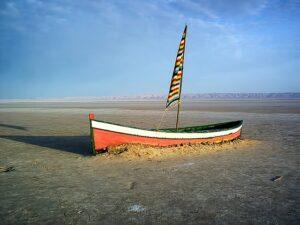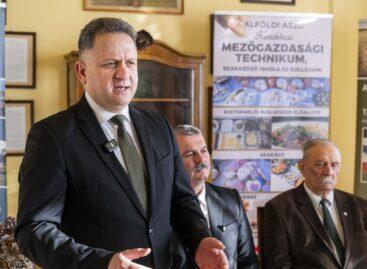Water restrictions have been introduced in Tunisia
Water restrictions have been introduced in Tunisia, in the North African country struggling with the economic crisis and years of drought, the regulations will probably hit the agricultural sector the most, the British daily The Guardian reported on Wednesday.

(Photo: Pixabay)
The state water company shuts off the water between 9:00 p.m. and 4:00 a.m., and the Ministry of Agriculture has banned the use of water for irrigation and car washing. A Tunisian resident, Hajszem Házil, told the press that they have already experienced water restrictions in the last two or three weeks, adding that even a few hours without water is very difficult. “All this was predicted in the 1970s, but no one ever did anything. After the (2011) revolution, things got worse, and the successive governments only made promises,” said Dzamel Dzridzer, the environmental organization WWF’s North -African office manager.
In Tunisia, the water reservoirs are estimated to be 30 percent below the desired amount
The Sidi Szálem reservoir, which would provide the water supply to Tunis among others, is barely 16 percent full. Precipitation has long been an important part of Tunisia’s water supply, but due to years of drought, it is raining less and less, and according to forecasts, the annual amount of precipitation may decrease by at least another four percent by 2050. The infrastructure of the water supply system is also a problem, primarily the aging of the pipes. According to the WWF, about 30 percent of the existing water is lost before it reaches the taps because of the leakage.
Local farmers are in trouble
Although water shortages also severely affect households, the difficulties hit the agricultural sector the most, which is responsible for 75 percent of the country’s water consumption. Last week, Mohammed Rajabija, one of the workers of the farmers’ union, called the drought catastrophic and said that this year’s grain harvest is expected to be only one-third of last year’s, i.e. barely 200-250 tons, compared to 750,000 tons in 2022. The management is looking for a solution to the problem in the establishment of new wells, sewage treatment, and desalination of seawater, but all these do not provide a short-term solution to the crisis.
MTI
Related news
Agricultural vocational training also places great emphasis on irrigation development
🎧 Hallgasd a cikket: Lejátszás Szünet Folytatás Leállítás Nyelv: Auto…
Read more >Related news
Nestlé to sell remaining ice-cream assets but commits to Froneri venture
🎧 Hallgasd a cikket: Lejátszás Szünet Folytatás Leállítás Nyelv: Auto…
Read more >40 secure jobs, sustainable solutions – new BURGER KING® in Csepel
🎧 Hallgasd a cikket: Lejátszás Szünet Folytatás Leállítás Nyelv: Auto…
Read more >








